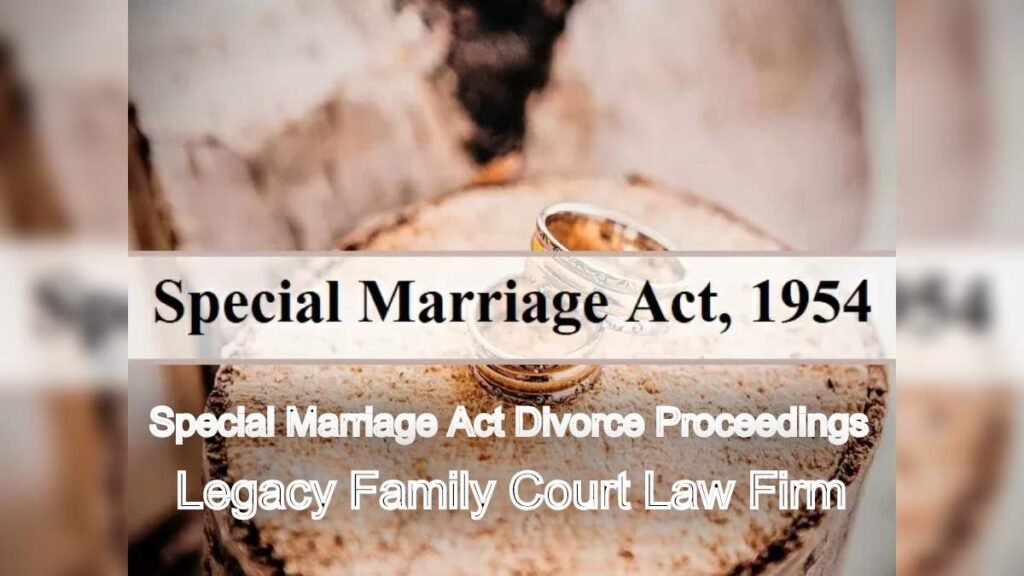Special Marriage Act Divorce India | Legal Services | Family Law
Special Marriage Act Divorce Proceedings in India: Key Points - Legacy Family Court Law Firm
The Special Marriage Act (SMA) of 1954 provides for the solemnization of marriage between persons belonging to different religions or belonging to the same religion and for the dissolution of such marriages. If you are considering divorce under the SMA, it's essential to understand the key points involved in the process.

Grounds for Divorce Under the SMA
The SMA outlines several grounds for divorce, including:
- Adultery: If one spouse commits adultery.
- Cruelty: If one spouse has treated the other with cruelty.
- Desertion: If one spouse has deserted the other for a continuous period of two years or more without reasonable cause.
- Conversion: If one spouse converts to another religion and refuses to live with the other spouse.
- Venereal disease: If one spouse suffers from a venereal disease and communicates it to the other spouse.
- Mental illness: If one spouse suffers from a mental illness and is incapable of managing their affairs.
- Repudiation of marriage: If one spouse repudiates the marriage and refuses to live with the other spouse.
Procedure for Filing a Divorce Petition
To file for divorce under the SMA, you must submit a petition to the district court having jurisdiction over the place where the parties last resided together. The petition must contain details about the marriage, the grounds for divorce, and the relief sought.
Evidence and Court Proceedings
During the court proceedings, both parties may present evidence to support their claims. The court will examine the evidence and determine whether the grounds for divorce have been proven.
Decree of Divorce
If the court finds in favor of the petitioner, it will grant a decree of divorce. The decree may be absolute or provisional. An absolute decree dissolves the marriage completely, while a provisional decree allows for a period of separation before the marriage is dissolved.
Maintenance and Custody
The court may also consider matters of maintenance and custody of children during the divorce proceedings. Maintenance may be awarded to the spouse who is unable to maintain themselves, and custody of children may be granted to either parent based on their best interests.
Read More
- What are the Documents for mutual consent divorce in Chennai? Expert Legal Advice
- How many times I have to attend the divorce court hearings in India? Expert Advice
- Dividing Assets During Divorce in India: A Fair Approach
- Trusted Family Court Lawyers for Your Case
- Navigating Divorce in Chennai: How to find the Best Divorce Lawyer?
- National Commission for Women (NCW):
Consulting a Legal Professional
Divorce proceedings can be complex and emotionally challenging. It is highly recommended to consult with a qualified family law attorney to understand your rights and options. The Legacy Family Court Law Firm can provide expert guidance and representation throughout the divorce process.